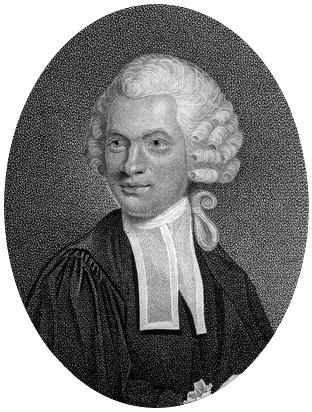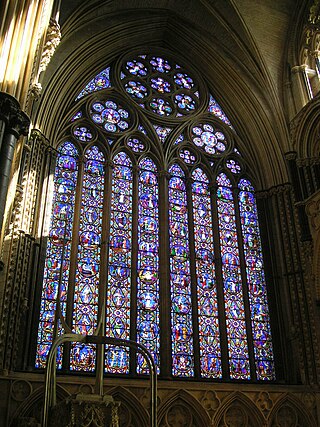The American Naturalist is the monthly peer-reviewed scientific journal of the American Society of Naturalists, whose purpose is "to advance and to diffuse knowledge of organic evolution and other broad biological principles so as to enhance the conceptual unification of the biological sciences." It was established in 1867 and is published by the University of Chicago Press. The journal covers research in ecology, evolutionary biology, population, and integrative biology. As of 2018, the editor-in-chief is Daniel I. Bolnick. According to the Journal Citation Reports, the journal had a 2020 impact factor of 3.926.

Capel Lofft was a British lawyer, writer and amateur astronomer.

Puck was the first successful humor magazine in the United States of colorful cartoons, caricatures and political satire of the issues of the day. It was founded in 1876 as a German-language publication by Joseph Keppler, an Austrian immigrant cartoonist. Puck's first English-language edition was published in 1877, covering issues like New York City's Tammany Hall, presidential politics, and social issues of the late 19th century to the early 20th century.

Edward Dowden was an Irish critic, professor, and poet.

Richard Anthony Proctor FRAS was an English astronomer. He is best remembered for having produced one of the earliest maps of Mars in 1867 from 27 drawings by the English observer William Rutter Dawes. His map was later superseded by those of Giovanni Schiaparelli and Eugène Antoniadi and his nomenclature was dropped.
The English Cyclopaedia: A new dictionary of universal knowledge, was published by Charles Knight, based on the Penny Cyclopaedia, of which he had the copyright. He was assisted by Alexander Ramsay and James Thorne. It was sometimes popularly referred to as Knights Encyclopedia.

Howard Saunders was a British businessman, who later in life became a noted ornithologist, specialising in gulls and terns.
Prince of Wales was a transport ship in the First Fleet, assigned to transport convicts for the European colonisation of Australia. Accounts differ regarding her origins; she may have been built and launched in 1779 at Sidmouth, or in 1786 on the River Thames. Her First Fleet voyage commenced in 1787, with 47 female convicts aboard, and she arrived at Botany Bay in January 1788. On a difficult return voyage in 1788–1789 she became separated from her convoy and was found drifting helplessly off Rio de Janeiro with her crew incapacitated by scurvy.
Entomologist's Monthly Magazine is a British entomological journal, founded by a staff of five editors – T. Blackburn, H. G. Knaggs, M.D., R. McLachlan, F.L.S., E. C. Rye and H. T. Stainton – and first published in 1864. The journal publishes original papers and notes on all orders of insects and terrestrial arthropods from any part of the world, specialising in groups other than Lepidoptera.

St. Nicholas Magazine was a popular monthly American children's magazine, founded by Scribner's in 1873 and named after the Christian saint. The first editor was Mary Mapes Dodge, who continued her association with the magazine until her death in 1905. Dodge published work by the country's leading writers, including Louisa May Alcott, Frances Hodgson Burnett, Mark Twain, Laura E. Richards and Joel Chandler Harris. Many famous writers were first published in St. Nicholas League, a department that offered awards and cash prizes to the best work submitted by its juvenile readers. Edna St. Vincent Millay, F. Scott Fitzgerald, E. B. White, and Stephen Vincent Benét were all St. Nicholas League winners.

The London Magazine is the title of six different publications that have appeared in succession since 1732. All six have focused on the arts, literature and poetry. A number of Nobel Laureates, including Annie Ernaux, Albert Camus, Doris Lessing, and Nadine Gordimer have been published in its pages. It is England's oldest literary journal.

Putnam's Monthly Magazine of American Literature, Science and Art was a monthly periodical published by G. P. Putnam's Sons featuring American literature and articles on science, art, and politics.

Scribner's Monthly: An Illustrated Magazine for the People was an illustrated American literary periodical published from 1870 until 1881. Following a change in ownership in 1881 of the company that had produced it, the magazine was relaunched as The Century Magazine.
The Massachusetts Magazine was published in Boston, Massachusetts, from 1789 through 1796. Also called the Monthly Museum of Knowledge and Rational Entertainment, it specialized in "poetry, music, biography, history, physics, geography, morality, criticism, philosophy, mathematics, agriculture, architecture, chemistry, novels, tales, romances, translations, news, marriages, deaths, meteorological observations, etc. etc." It was intended as "a kind of thermometer, by which the genius, taste, literature, history, politics, arts, manners, amusements and improvements of the age and nation, may be ascertained." Founded by Isaiah Thomas, the magazine was also published by Ebenezer T. Andrews (1789-1793), Ezra W. Weld (1794), Samuel Hill (1794), William Greenough (1794-1795), Alexander Martin (1795-1796), Benjamin Sweetser (1796), and James Cutler (1796). It was edited by Isaiah Thomas, Thaddeus Mason Harris (1795-1796), and William Bigelow (1796). Contributors included Joseph Dennie, William Dunlap, Benjamin Franklin, Sarah Wentworth Morton, Judith Sargent Murray, and Christian Gullager. Sheet music was published with some issues, including compositions by Hans Gram.

Famous Impostors is the last of four non-fiction books completed by Bram Stoker, the author of Dracula. It features numerous historical impostors and hoaxes.
Arthur Cowper Ranyard was an English astrophysicist.
Kathleen O'Meara, also known under her pen name Grace Ramsay, was an Irish-French Catholic writer and biographer during the late Victorian era. She was the Paris correspondent of The Tablet, a leading British Catholic magazine. Irish Monthly also published many of her serialized and biographical works. O'Meara also wrote works of fiction where she explored a variety of topics from women's suffrage to eastern European revolutions. The majority of her novels contained Catholic themes and social reform issues.

The Universal Magazine of Knowledge and Pleasure was a periodical published in London in the period 1747–1814 by John Hinton and W. Bent. It advertised itself as dealing with "Letters, Debates, Essays, Tales, Poetry, History, Biography, Antiquities, Voyages, Travels, Astronomy, Geography, Mathematics, Mechanics, Architecture, Philosophy, Medicine, Chemistry, Husbandry, Gardening and other Arts and Sciences; which may render it Instructive and Entertaining. To which will be added An Impartial Account of Books in several Languages, And of the state of Learning in Europe; also Of the New Theatrical Entertainments." The magazine was published under Royal Licence according to an Act of Parliament obtained by Hinton.
The Eclectic Magazine of Foreign Literature, Science, and Art was a monthly periodical published between 1844 and 1907. It reprinted the best of British magazines, as well as extracts from new books and, in its later years, original articles and fiction.

James Henry Nixon (1802–1857) was an illustrator and painter during the Victorian period, who worked in the firm Ward and Nixon painting stained glass windows. James Henry Nixon was a protégé of Charles Winston, who praised Nixon's work at Westminster Abbey and Church of Christ the King, Bloomsbury. The company Ward and Nixon was followed by Ward and Hughes.












